৬ ফাল্গুন ১৪৩২
Despite increase in govt. spending, public admin or services haven't been reformed
17 May 2025 19:05 PM
NEWS DESK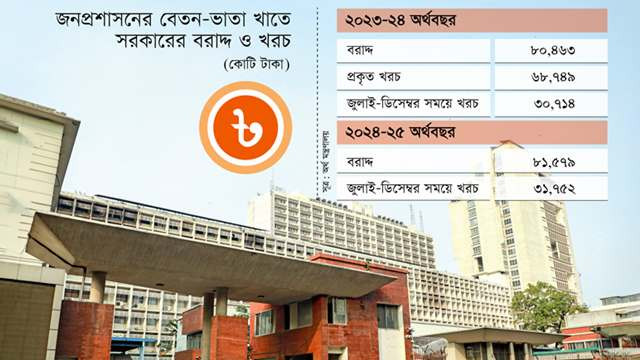
According to data from the Finance Division, the government spent BDT 479.9 billion on general public services by January of FY 2024-25.
According to data from the Finance Division, the government spent BDT 479.9 billion on general public services by January of FY 2024-25.
The Public Administration Reform Commission recommended reducing the number of cabinet secretaries, principal secretaries, and secretaries to 60 in order to cut government spending. The report also stressed the need to improve transparency and accountability among government officials. But more than three months have passed since the submission of that report, and there has been no visible progress.
Meanwhile, government spending on salaries, allowances, and public services continues to rise. In the current 2024–25 fiscal year (FY), government expenditure in this sector increased by nearly BDT 160 billion by January compared to the same period in the previous fiscal year. Experts believe the cost will rise even further if new contractual appointments, retrospective promotions, and planned dearness allowances for civil servants are implemented. However, public administration experts believe that despite the rise in spending, ordinary citizens are not benefiting due to the lack of reforms in the sector.
Every year, the government allocates a large share of the national budget to manage the country’s core institutions — including public administration, the executive branch, judiciary, economic management, tax collection, and data governance. And a large portion of that allocation is spent on salaries and allowances for government officials and employees.
The “General Public Services” sector includes high-priority ministries and departments such as the President’s Office, Parliament, Prime Minister’s Office, Cabinet Division, Election Commission, Ministry of Public Administration (MoPA), Ministry of Foreign Affairs (MoFA), Public Service Commission (PSC), Finance Division, Internal Resources Division (IRD), Financial Institutions Division (FID), Economic Relations Division (ERD), Planning Division-2, Implementation Monitoring and Evaluation Division (IMED), and the Statistics and Informatcs Division (SID).
According to data from the Finance Division, the government spent BDT 479.9 billion on general public services by January of FY 2024-25. During the same period in the previous fiscal year, the expenditure was BDT 320.84 billion, indicating that the government’s spending in this sector rose by BDT 159.06 billion over a seven-month period.
Out of this, BDT 370.47 billion was spent on salaries and allowances for civil servants, compared to BDT 364.90 billion during the same period last fiscal year. In addition, BDT 127.97 billion was spent on law and order and public safety in the first seven months of this fiscal year. During the same period in the previous fiscal year, government spending in this sector was BDT 125.08 billion. As a result, spending in this area has also increased.
Repeated attempts to reach Dr. Md Mokhlesur Rahman, Senior Secretary of the Ministry of Public Administration (MoPA), for comments on the rising costs and lack of reform yielded no response. However, Additional Secretary ANM Moinul Islam told Bonik Barta, “The increase in expenditure is not a matter of any single ministry, it’s a issue. Some reform activities have already started. Once the National Consensus Commission submits its report, the rest will be guided accordingly.”
The Public Administration Reform Commission (PARC) previously submitted a set of recommendations aimed at overhauling the country’s administrative and governance structure. Before preparing the set of recommendations, a survey on the public perceptions regarding the public administration was conducted. According to the survey, over 84 percent of respondents believed that reforms were necessary. Eighty percent said the current administrative system was not citizen-friendly, while nearly 69 percent believed neutrality had been lacking over the past 15 years. Around 56 percent identified political interference as the primary obstacle to a people-oriented civil service, and 42 percent pointed to corruption. Over half of the respondents (52 percent) said ensuring accountability should be the main reform focus, while 36 percent emphasized rooting out corruption. An overwhelming 96 percent reported that public administration lacks transparency and accountability.
When contacted, Abdul Muyeed Chowdhury, Chief of the Public Administration Reform Commission, told Bonik Barta, “Our responsibility was to submit the report. We’ve done our part. It’s now up to the government to decide how to move forward with implementation.”
Although the Public Administration Reform Commission has made its recommendations, no visible progress has been made in implementing them. Analysts say there is no sign that the reform process will begin anytime soon either.
Dr. Sadik Hasan, Professor of Public Administration at the University of Dhaka, told Bonik Barta, “What’s needed is strong political commitment. Political parties must reach a consensus that whichever party is in power will not use the administration as a political tool. Without that, the current scenario cannot change.”
The last National Pay Scale for government employees was introduced in 2015. Between 1977 and 2015, eight pay scales have been introduced. And the most recent dearness allowance — 20 percent — was granted in 2013, which raised monthly salaries by between BDT 1,300 and BDT 6,000. However, at that time, time scale and selection grade benefits were removed from the structure.
Each year, the government allocates a significant portion of the budget for salaries and allowances of public servants. Yet, a large part of it often remains unused. In the FY 2023–24, the initial allocation for salaries and allowances was BDT 804.63 billion. That amount was later revised down to BDT 778.94 billion. However, even this reduced allocation was not fully spent. The actual expenditure for that fiscal year stood at BDT 687.49 billion.
Former secretary AKM Abdul Awal Mazumder explained, “General public service includes all forms of services (transport, healthcare, security, and food) provided to citizens. Some of these are direct, others indirect. The budget for this sector is increasing, but the benefits are not reaching the people as they should. If services are not ensured, if those providing them are not held accountable or morally motivated, then simply raising salaries is not likely to improve anything.”
He added, “Corruption has become a norm in this country. I don’t believe it’s driven by poverty anymore. Salaries and benefits must improve. And strict discipline must be enforced as well. Without that, government expenses will keep rising, but citizens won’t see any real benefit.”
The Public Administration Reform Commission (PARC) made more than a hundred recommendations in its final report. But former cabinet secretary Md Mosharraf Hossain Bhuiyan stressed the importance of reviewing those proposals holistically rather than in isolation. He told, “The reports submitted by various reform commissions are important. The recommendations made by the Public Administration Reform Commission should be aligned with those from other commissions. A coordinated set of recommendations must be adopted and implemented to resolve the challenges facing public administration.”
He also pointed out that administration is an integral part of the state apparatus. “The government wants to reform the entire state structure. Administration is part of that structure, it doesn’t work in isolation. The focus should be on implementing reform proposals that are built on national consensus and coordination,” he said.




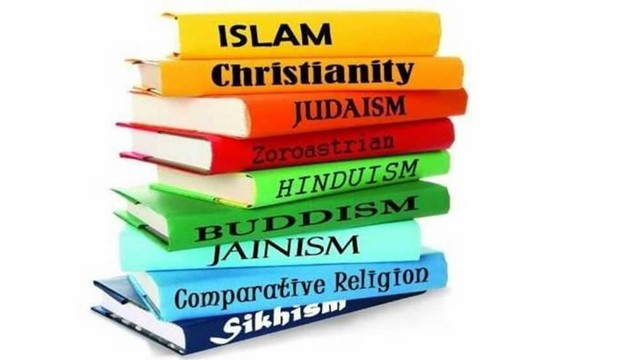
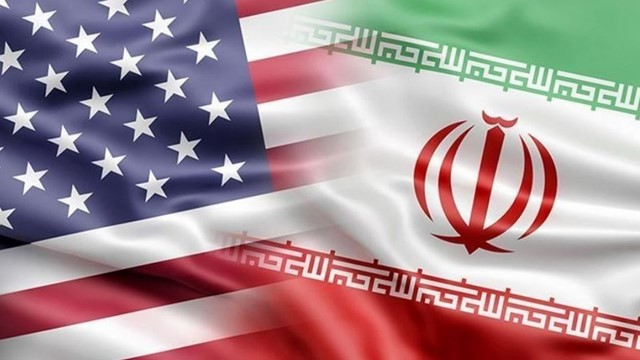
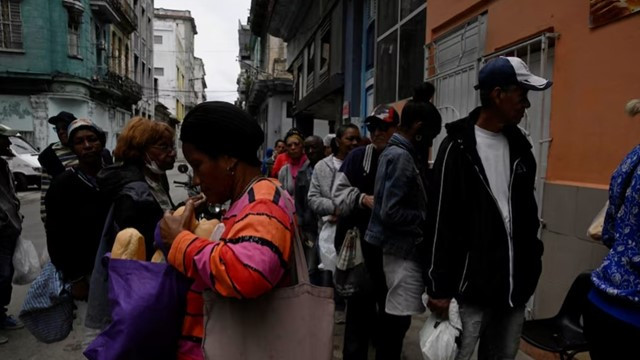


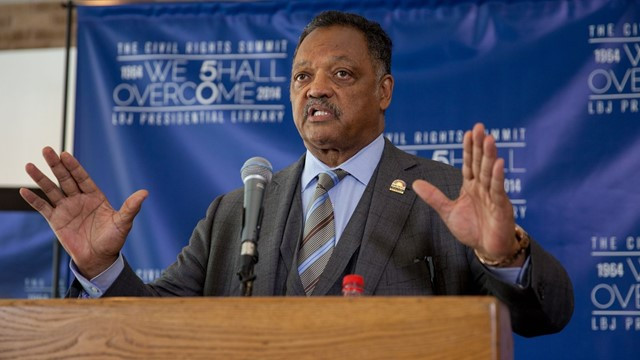

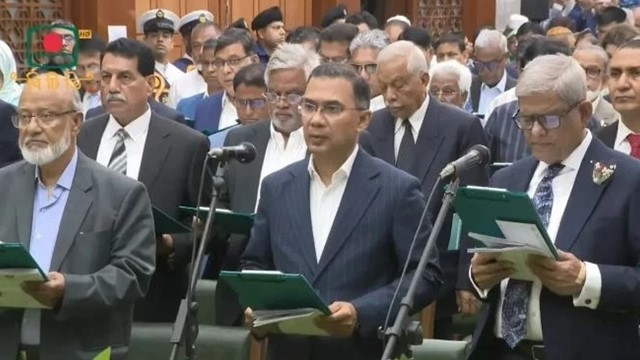
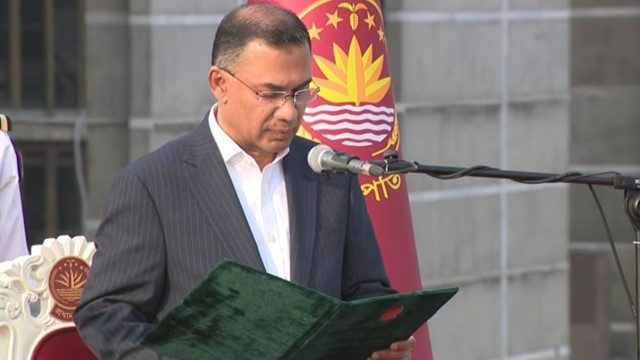
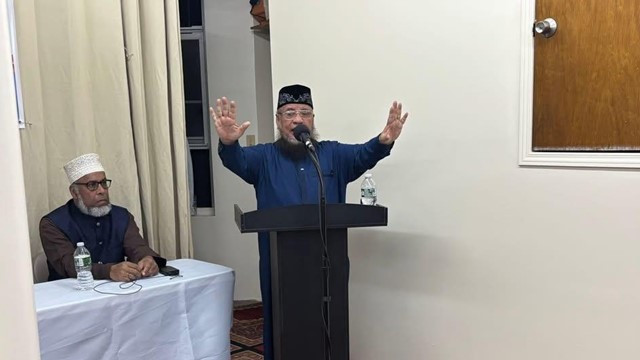
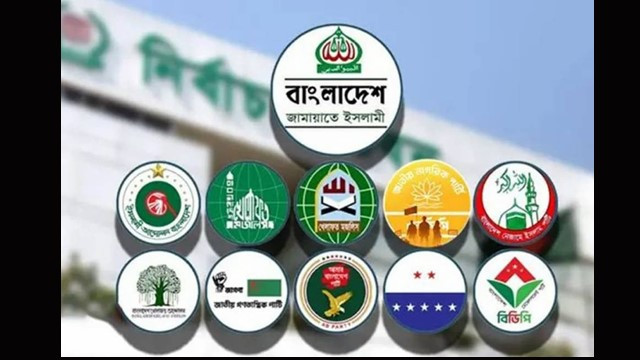
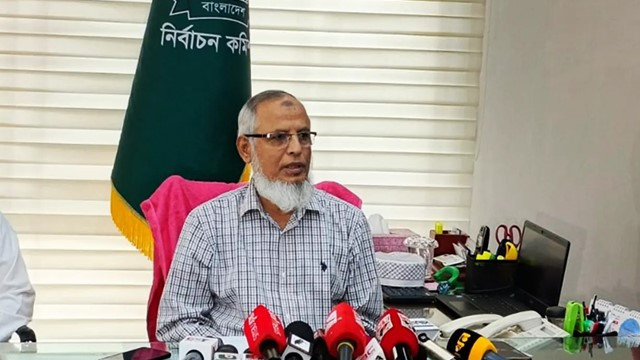
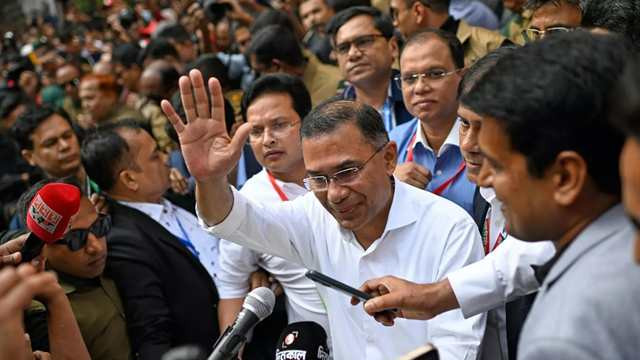
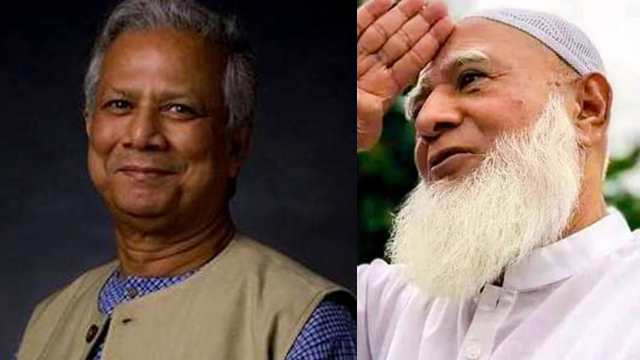
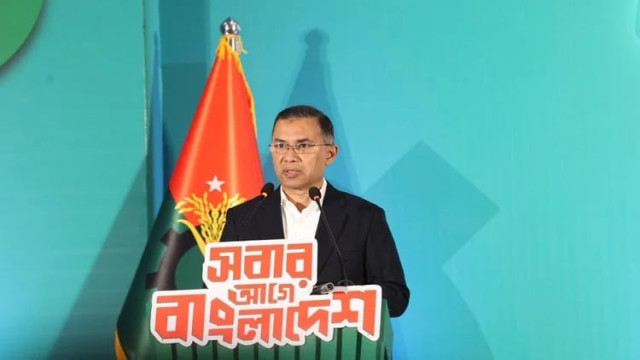
Comments Here: